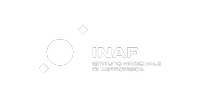ASAP - Automatics in Space Exploration
Abstract: A critical need for the future of space exploration is the ability to run artificial intelligence (AI) algorithms in situ under the harsh conditions of space. In recent years AI has been revolutionising industrial processes and everyday activities primarily because the computing power has reached a level that enables these algorithms to function. On the ground this is primarily due to the enormous investments in the development of high-performance graphical processing units (GPU) and of the optimised software needed for them. These are delicate devices that cannot be deployed in the harsh conditions of space and the transistor density of the components of a GPU would be too extreme to resist the radiations present in space.
ASAP takes on the task of using processors that can sustain the radiation environment of space to transfer to space operation AI algorithms that so far could only be run on the ground. ASAP will use the most advanced space-hardiness proven processors and develop the software needed to run AI algorithms on them. ASAP will show proof of principle functionality and will reach TRL-4.
ASAP focuses on five goals: 1) Working towards the identification and implementation of Machine Learning algorithms for the next generation space applications: a suite of candidate algorithms has been identified and will be evaluated during the project for their possible deployment to space; 2) Identification and development of a computing platform for ML algorithms producing a prototype hardware using only components that can operate under space conditions; 3) Definition of a validation plan and its execution in a laboratory validation campaign reaching TRL-4; 4) Implementation of a virtual environment to provide support to the development of ML algorithms; 5) Transforming the future development of technologies and scientific instrumentation for space science and exploration missions bringing artificial intelligence to space missions.
 ASAP has received funding from the European Union's Horizon Europe research and innovation programme under grant agreement No 101082633.
ASAP has received funding from the European Union's Horizon Europe research and innovation programme under grant agreement No 101082633.
Dettagli tecnici
INAF PI: Maria Federica Marcucci
Struttura INAF: IAPS
Bando: HORIZON-CL4-2022-SPACE-01-82
Riferimento contratto n. 101082633
Inizio: 01/10/2023
Durata: 36 mesi
Coordinamento: KU Leuven (BE)
Partner:
|
UNICAL (IT) |
CNRS (FR) |
KTH (SE) |
INGENIARS (IT) |

